The topic of training to improve revolutionary ethics was mentioned many times by President Ho Chi Minh in his speeches and writings from before the founding of the Party until the last anniversary of the Party's founding. Today, the Party is strongly demanding "improvement of revolutionary ethics" and emphasizing the responsibility of "wiping out individualism".
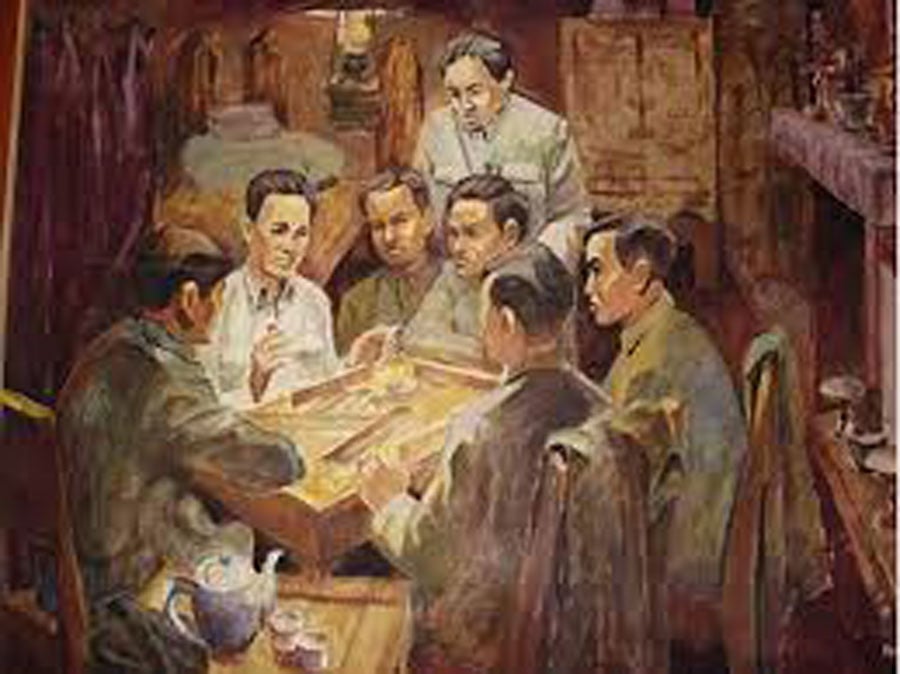
Old advice
In early Spring of Canh Ngo 1930, Nguyen Ai Quoc chaired the unification conference to establish the Communist Party of Vietnam. This was a major event, a historical turning point of the Vietnamese revolution. It was also an inevitable result that met the historical requirement of having a genuine revolutionary party to lead the patriotic movement. Before that, in 1927, Nguyen Ai Quoc had written the famous work The Revolutionary Path, preparing the political , ideological, and theoretical conditions for the establishment and implementation of the leadership role of the Communist Party.
In the Revolutionary Path, Nguyen Ai Quoc stated on the first page: “Qualities of a revolutionary”1. He pointed out the essential qualities of a revolutionary cadre: Must have revolutionary ideals - “Keep the ideology firmly”; put the revolutionary task for the people and the country above all else - “For public interest and not for private interest”; must be frugal - “Have little desire for material things”; always learn - “Research, consider” and “Not be greedy for fame, not arrogant”, with oneself must be ready to “Sacrifice” and “Do what one says”, “Resolutely correct one’s mistakes”, “Maintain strict discipline” but with others must be “forgiving”. The way of working must be “Consider the situation carefully”, “Be decisive”, “Be brave”, “Obey the organization”.
From the early days of the new government, when the Party became the ruling party, President Ho Chi Minh warned very early about the risks of moral degradation among cadres. In his Letter to the People's Committees of regions, provinces, districts and villages (October 17, 1945), he clearly pointed out and strongly criticized the shortcomings: Illegal; relying on power; corruption; selfishness; division; arrogance. In 1947, in his famous work Reforming the way of working, President Ho Chi Minh clearly pointed out the cause of these diseases as Individualism. Later, he repeatedly mentioned the theme of fighting against Individualism in many of his articles and speeches.
On June 7, 1968, when giving his opinion on the book Good People, Good Deeds, President Ho Chi Minh raised an important point: “A nation, a Party and each person who were great yesterday, had great appeal, will not necessarily be loved and praised by everyone today and tomorrow if their hearts are no longer pure, if they fall into individualism”2. During his last anniversary of the founding of the Party, before the lines in his Testament: “First of all, about the Party…” were published, President Ho Chi Minh wrote the article “Enhancing revolutionary morality, wiping out individualism”3 published in Nhan Dan Newspaper on February 3, 1969. He emphasized: “In the history of the Party’s struggle and in all daily activities, especially on the combat and production fronts, many of our cadres and Party members have shown themselves to be heroic, exemplary, going through hardships first, enjoying life later, and have made very glorious achievements. Our Party has trained a generation of revolutionary youth, both men and women, who are very enthusiastic and brave in all tasks”4 and “Our people and our Party are very proud to have such worthy children”5. However, since becoming the ruling Party, a number of cadres and Party members have been assigned the responsibility of holding key positions in the state apparatus with titles and privileges and benefits, but have suffered from the “disease” of individualism that has degenerated and transformed. This phenomenon has appeared and He saw that it was necessary to seriously warn about the dangers early.
To improve revolutionary ethics and eliminate individualism, President Ho Chi Minh emphasized: “We must practice self-criticism and criticism seriously within the Party. We must welcome and encourage the masses to honestly criticize cadres and Party members. The Party cell's living regime must be serious. Party discipline must be strict. Party inspection work must be tight”6. For each individual, the best way to cure the “disease” of individualism was repeatedly pointed out by him as regular and serious self-criticism and criticism, with the spirit of putting the interests of the Party and the people above all else. “Every cadre and Party member must self-examine, self-criticize, and self-correct every day, just as they must wash their face every day. If this is the case, there will be no illness in the Party and the Party will be extremely healthy”7.
New request today
Individualism is the source of “diseases” that corrupt the cadres and party members. This is a potential danger that causes the Party to gradually lose its revolutionary character, intelligence, morality, and popular character, making people not believe in the Party's policies and what party members say. Individualism is especially dangerous and difficult to fight because it is an invisible enemy, and it lies within each person. It is “like a germ that gives rise to many other diseases” with complex, diverse, and unpredictable complications. Individualism is also dangerous because the “diseases” it causes easily fascinate people, creating for those who suffer from them happiness and satisfaction, even if it is fake and temporary, so that they often find it difficult to avoid it even though they know about it.
Ethical deviations in standards and lifestyles have been occurring - first and foremost, and most dangerously, among those in positions of power. Those people are called "servants" of the people but have "transformed themselves" in many different ways. The state of political and ideological degradation, "group interests", wastefulness, apathy, and achievement disease among a number of cadres and party members have not been pushed back, etc. The state of lack of order and discipline, bureaucracy, being distant from the people, harassing the people, widespread "petty corruption", waste of public funds, cumbersome and inefficient apparatus... have not been overcome.
The issue of education, training of ethics, qualities and qualifications of revolutionary cadres has become urgent. The 13th National Party Congress emphasized: "In the coming years, it is necessary to pay special attention to and further promote the comprehensive building and rectification of the Party in terms of politics, ideology, ethics, organization and cadres"8. The Party Central Committee and the Politburo have issued many documents on Party building and rectification, on the cultivation and training of cadres and party members, Resolution 4 of the 11th and 12th Central Committees, Conclusion 21 of the 13th Party Central Committee, Regulations of the Politburo on 19 things that party members must not do, on the responsibility to set an example, etc. In May 2024, the Politburo issued Regulation No. 144-QD/TW on Revolutionary ethical standards of cadres and party members in the new period with five basic principles: Patriotism, respect for the people, absolute loyalty to the Party and the Fatherland; Democracy, innovation, creativity, integration; Diligence, thrift, integrity, uprightness, impartiality; Solidarity, discipline, love, responsibility; Exemplary, modesty, self-cultivation, lifelong learning. These are the foundations for cadres and party members to strive and practice on their own. To combat individualism, the things that need to be emphasized are to strengthen Party discipline; enhance the effectiveness of the legal system; purify, consolidate and perfect the apparatus so that individualism has no room to develop. However, all efforts are/need to continue and the training (to) improve the revolutionary ethics of each of our cadres and party members needs to be even more effective.
Entering the era of national development, many new requirements are placed on the capacity, intelligence, qualifications and moral qualities of cadres and party members. The Party is focusing on restructuring and building a "lean, compact, strong, effective and efficient" political system. That task is closely linked to the reasonable arrangement and assignment of cadres, party members, civil servants and public employees to maximize the talents and contributions of each person and also sets new requirements on cadre standards and standards of qualifications. At the same time, that task is to screen and remove from position those who do not have enough qualifications, capacity and prestige.
In the strategic orientations to bring the country into a new era, cadres and cadre work are “very important” issues, “deciding everything”, “cadres are the root of all work”, and “the decisive factor in the success or failure of the revolution”. Building a contingent of cadres with sufficient qualities and capacity to bring the country into the era of national development is an urgent issue. Regarding the qualities of cadres in the new revolutionary period, General Secretary To Lam emphasized the first prerequisite: “Having a strong political stance, pure moral qualities, daring to think, daring to do, daring to take responsibility, daring to innovate, daring to make breakthroughs for the common good; wholeheartedly serving the Fatherland and the people, always putting the interests of the nation, the people, and the interests of the people above all else”9.
Those contents have been inherited from “Qualities of a revolutionary” as well as “Improving revolutionary morality, wiping out individualism” that President Ho Chi Minh advised in the past but have been developed to a new level in a completely new context. Improving the revolutionary morality of cadres and party members is one of the “necessary conditions” for us to confidently enter a new era of development./.
- Ho Chi Minh: Complete Works - National Political Publishing House, Hanoi, 2011, vol. 2, p. 280.
- Ho Chi Minh: Complete Works - Ibid, vol. 15, p. 672.
- Ho Chi Minh: Complete Works - Ibid, vol. 15, p. 546
- As Note 3.
- As Note 3.
- Ho Chi Minh: Complete Works - Ibid, vol. 15, p. 547.
- Ho Chi Minh: Complete Works - Ibid, vol. 5, p. 279.
- Communist Party of Vietnam: Documents of the 13th National Congress of Delegates, National Political Publishing House, Hanoi, 2021, vol. I, p. 180.
- https://dangcongsan.vn/thoi-su/noi-dung-chuyen-de-cua-tong-bi-thu-to-lam-ve-ky-nguyen-moi-ky-nguyen-vuon-minh-cua-dan-toc-682050.html accessed at 14:45, December 8, 2024.
King Ngo Anh
Source: https://baohanam.com.vn/chinh-tri/tu-tu-cach-nguoi-cach-menh-den-yeu-cau-nang-cao-dao-duc-cach-mang-hom-nay-145452.html



![[Photo] Politburo works with the Standing Committee of Cao Bang Provincial Party Committee and Hue City Party Committee](https://vphoto.vietnam.vn/thumb/1200x675/vietnam/resource/IMAGE/2025/8/28/fee8a847b1ff45188749eb0299c512b2)
![[Photo] Red flag with yellow star flutters in France on National Day September 2](https://vphoto.vietnam.vn/thumb/1200x675/vietnam/resource/IMAGE/2025/8/28/f6fc12215220488bb859230b86b9cc12)

![[Photo] General Secretary To Lam attends the opening ceremony of the National Achievements Exhibition](https://vphoto.vietnam.vn/thumb/1200x675/vietnam/resource/IMAGE/2025/8/28/d371751d37634474bb3d91c6f701be7f)
![[Photo] Prime Minister Pham Minh Chinh meets with Speaker of the New Zealand Parliament Gerry Brownlee](https://vphoto.vietnam.vn/thumb/1200x675/vietnam/resource/IMAGE/2025/8/28/cec2630220ec49efbb04030e664995db)
![[Photo] General Secretary To Lam presents the 45-year Party membership badge to comrade Phan Dinh Trac](https://vphoto.vietnam.vn/thumb/1200x675/vietnam/resource/IMAGE/2025/8/28/e2f08c400e504e38ac694bc6142ac331)
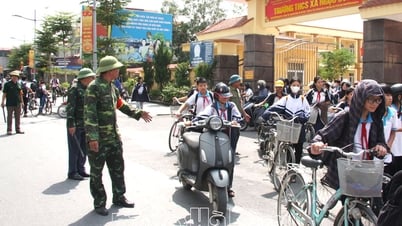

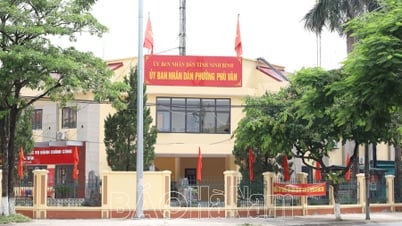
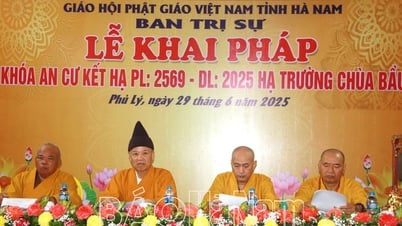







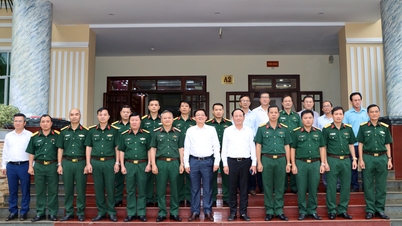
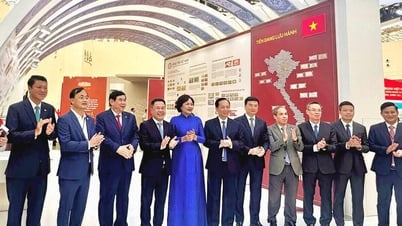

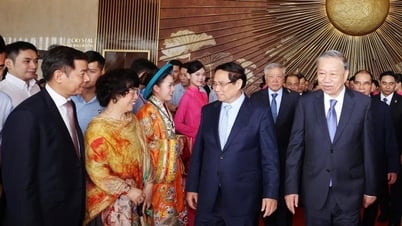














































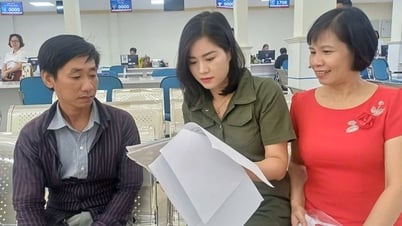







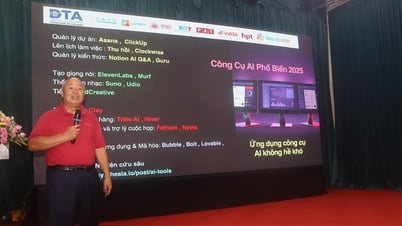

















Comment (0)